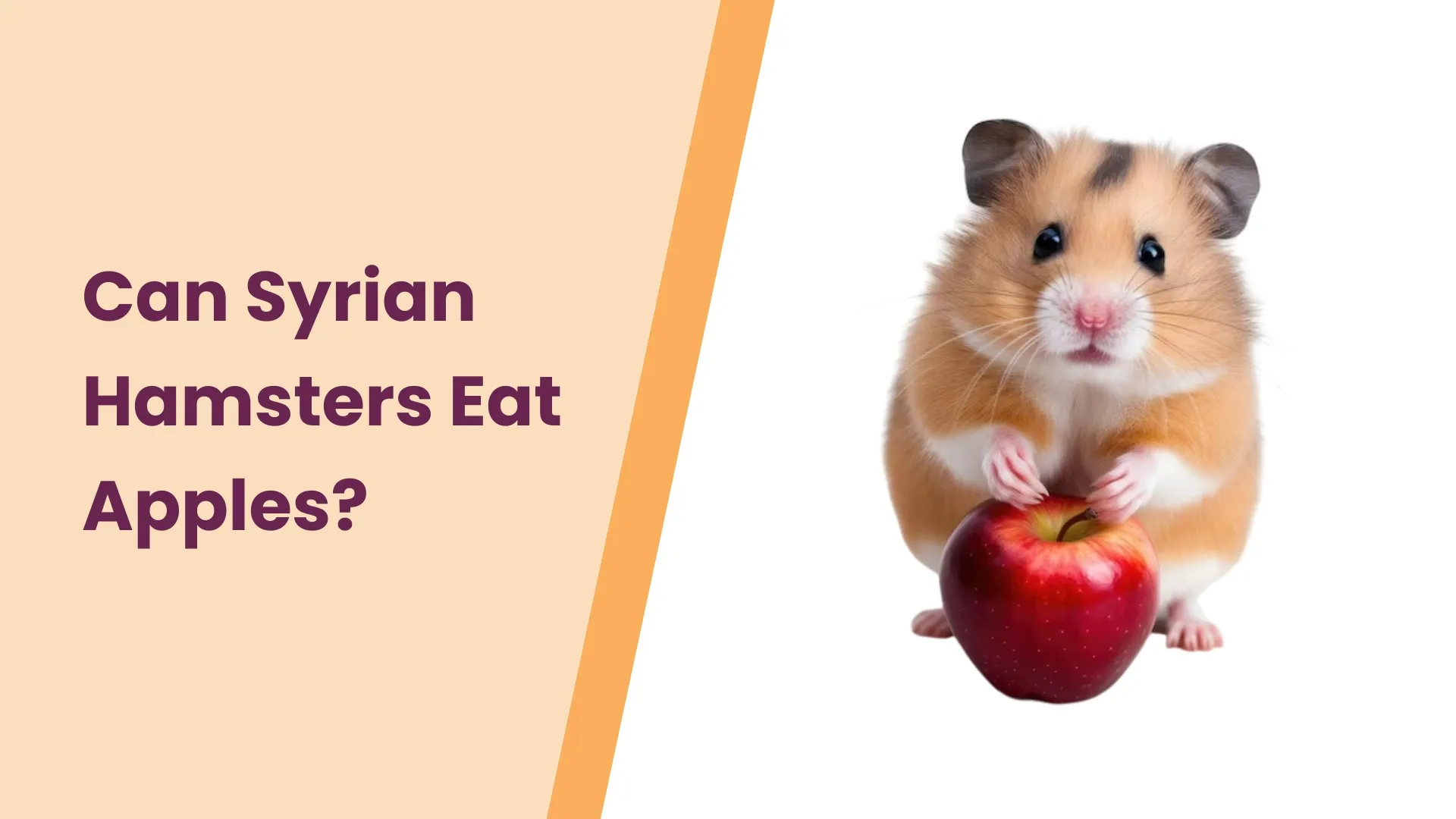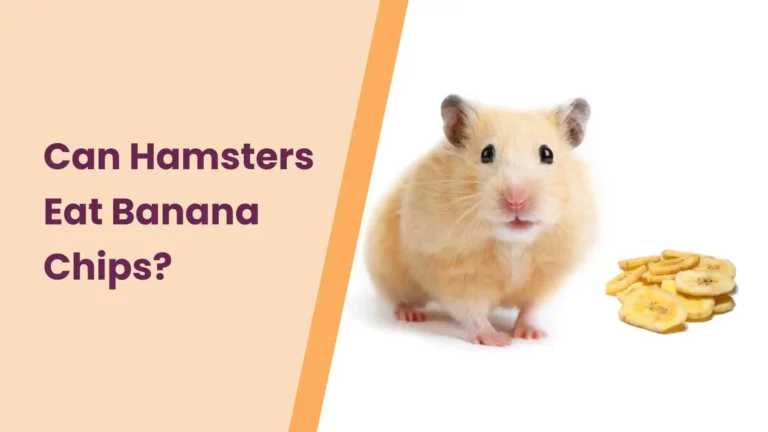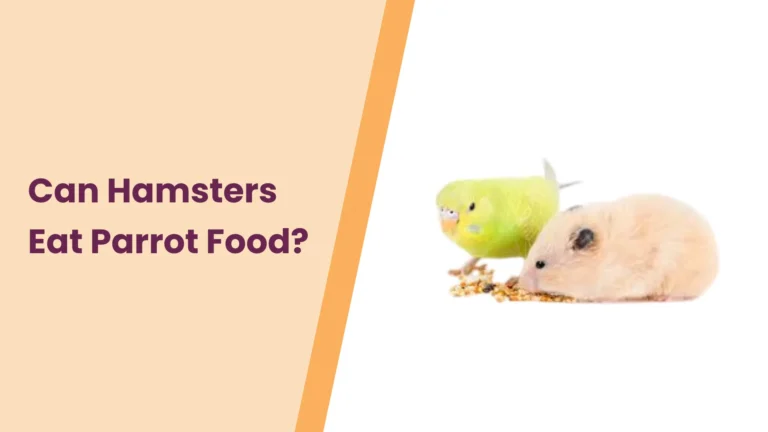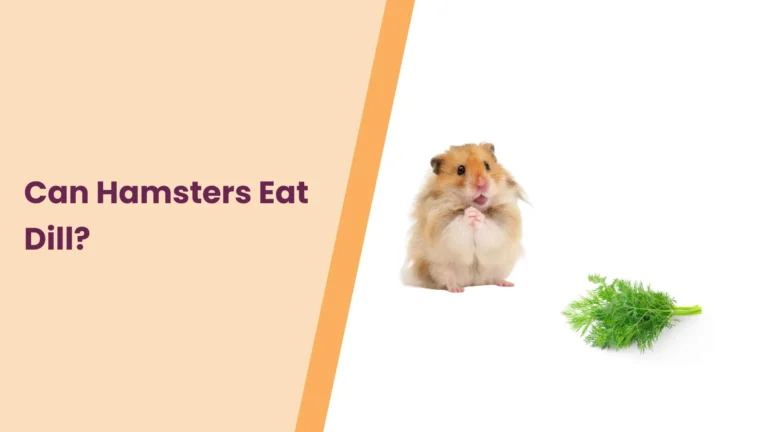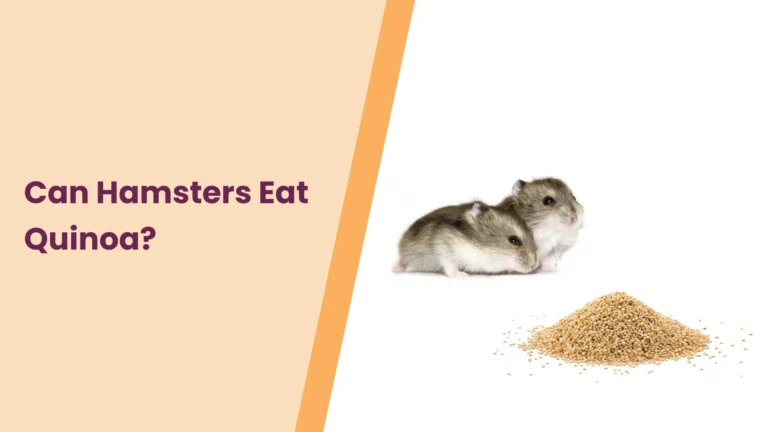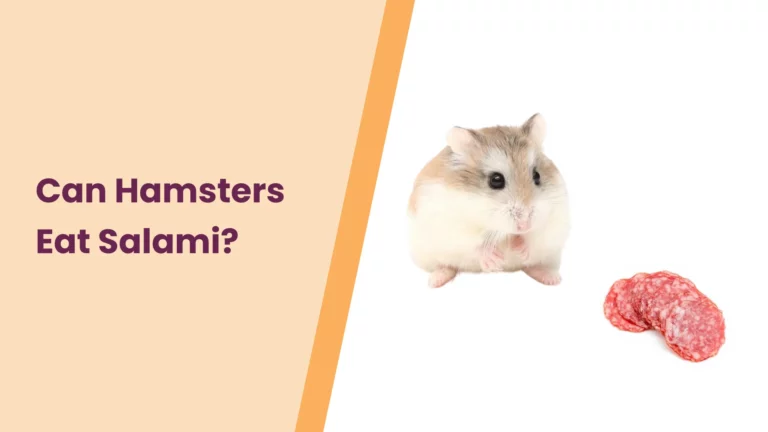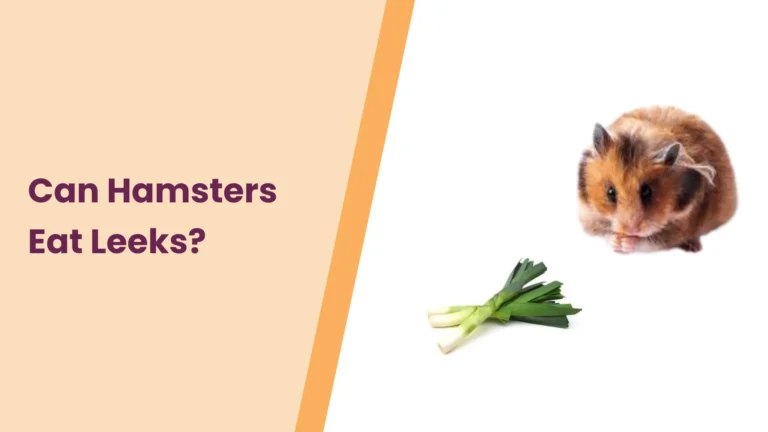Can Syrian Hamsters Eat Apples? – An Ultimate Guide
Hamsters, those tiny balls of fur that steal our hearts with their endearing antics, deserve the very best in care. As responsible pet owners, we’re always on a quest to ensure their well-being, and a significant part of that mission is providing a balanced and nutritious diet.
But wait, can our beloved Syrian hamsters indulge in the sweet, crisp delight of apples? It’s a question that might have crossed your mind, and it’s one we’re here to explore today. In this article, we’ll delve into the juicy details of whether Syrian hamsters can safely nibble on apples, uncover the nutritional benefits they might enjoy, and learn the art of offering apples as a treat without compromising their health.
So, if you’re curious about the apple-hamster connection, let’s embark on this journey together and find out if this popular fruit can find a place in your hamster’s menu.
Are Apples Safe for Syrian Hamsters?
The tempting aroma and sweet taste of apples may leave you curious about whether they are a safe choice for your Syrian hamster. The short answer is yes, Syrian hamsters can enjoy apples, but, as with any treat, there are important factors to consider.

Apples themselves are generally safe for hamsters when offered in moderation and prepared correctly. However, there are a few potential risks and concerns to be aware of:
Moderation is Key: Syrian hamsters have sensitive digestive systems, and introducing new foods, such as apples, can sometimes lead to digestive upset. To mitigate this risk, offer only small, bite-sized pieces and observe your hamster’s reaction. If you notice any signs of diarrhea or other digestive issues, it’s best to limit or discontinue apple treats.
Avoid Seeds and Core: Hamsters should never consume apple seeds or the core, as these contain small amounts of cyanide, which can be toxic. Always remove seeds and the core before serving apples to your hamster.
Clean and Fresh: Ensure that the apples you provide are fresh and thoroughly washed to remove any potential pesticide residues. Organic apples are a preferred choice when available.
Diabetes Risk: Apples are sweet, and hamsters can be prone to diabetes. Feeding them sugary treats, including apples, too frequently may increase the risk of developing this condition. To prevent this, offer apples as an occasional treat rather than a daily staple.
Allergies and Preferences: Keep in mind that just like humans, hamsters can have individual preferences and allergies. While some hamsters may eagerly munch on apple slices, others may not show the same enthusiasm. Pay attention to your hamster’s reaction and adjust their diet accordingly.
In summary, while apples can be a delightful and nutritious treat for your Syrian hamster, it’s crucial to approach them with care. Offer them in moderation, remove seeds and the core, and watch for any adverse reactions. As with all treats, the key is balance. Syrian hamsters should receive the majority of their nutrition from high-quality hamster pellets and fresh vegetables, with apples adding a touch of variety and enjoyment to their diet.
Nutritional Value of Apples
Apples are a beloved fruit, known for their delightful crunch and sweet, juicy flavor. Beyond their human appeal, these fruits also offer a host of nutritional benefits, making them a curious choice for our tiny, whisker-twitching friends, Syrian hamsters. Apples are rich in essential nutrients that can contribute positively to a hamster’s overall well-being.
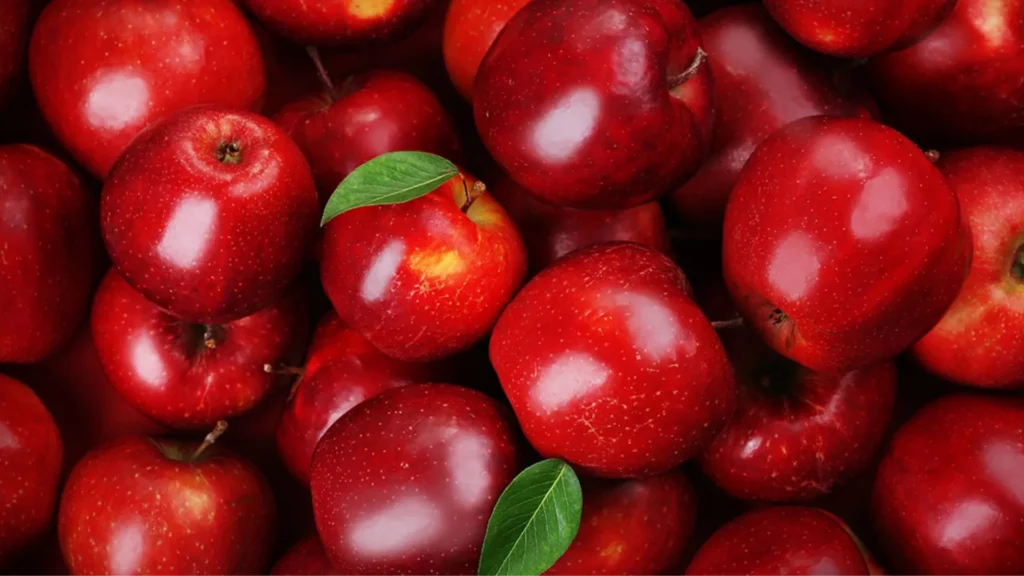
They’re particularly abundant in dietary fiber, which aids in digestion and helps maintain a healthy gastrointestinal system. Fiber is especially important for hamsters, as it helps prevent constipation and keeps their digestive processes running smoothly.
In addition to fiber, apples contain significant amounts of vitamin C, an antioxidant that’s essential for immune system support. For Syrian hamsters, just as for humans, this vitamin is crucial for maintaining good health. Antioxidants like vitamin C help combat free radicals that can cause cell damage, protecting your furry companion from potential health issues.
Moreover, apples are a source of various other vitamins and minerals, including vitamin A and potassium. These nutrients play vital roles in maintaining your hamster’s vision, bone health, and overall vitality.
When you offer your Syrian hamster a small piece of apple as an occasional treat, you’re not only providing a tasty morsel but also a potential boost to their health. Apples can be an excellent way to supplement their diet with essential nutrients and keep their immune system in top shape. However, as with any treat, moderation is the key to avoid overfeeding, which can lead to health problems.
How to Feed Apples to Your Syrian Hamster
So, you’ve decided to introduce the sweet and crispy delight of apples to your Syrian hamster’s diet. Great choice! To do this safely and in a way that maximizes enjoyment for your furry friend, here are some essential guidelines to keep in mind:
1. Proper Preparation: Start by selecting a fresh apple, preferably organic, to ensure that you’re offering the best quality to your hamster. Wash the apple thoroughly to remove any potential pesticide residues.
2. Slice and Remove Seeds: Before serving, slice the apple into small, manageable pieces that are easy for your hamster to handle. Always remember to remove seeds and the core to prevent any exposure to cyanide.
3. Portion Control: Syrian hamsters are small, and their portion sizes should reflect that. A small, bite-sized piece is more than enough for a single serving. Apples should only be a small part of their diet, not a primary food source. Moderation is key to avoid potential digestive issues and an increased risk of diabetes.
4. Frequency: As a rule of thumb, it’s best to offer apples as an occasional treat rather than a daily staple. Once or twice a week is typically sufficient to add variety to your hamster’s diet without overindulging.
5. Observing Your Hamster: Pay close attention to how your hamster reacts to apples. Some hamsters may eagerly nibble on them, while others might show less interest. As mentioned earlier, individual preferences can vary. If your hamster enjoys apples, that’s great, but if not, there’s no need to force it.
By following these guidelines, you can safely incorporate apples into your hamster’s diet, enhancing their culinary experience without compromising their health. Remember that the key is balance and moderation. While apples offer nutritional benefits, they should remain a small part of their diverse diet, with the majority of nutrition coming from high-quality hamster pellets and fresh vegetables.
Syrian Hamster Diet Basics
As responsible hamster owners, it’s our duty to ensure our tiny companions enjoy a life filled with health and happiness. A fundamental aspect of this is providing them with a well-rounded and nutritious diet. Syrian hamsters, also known as teddy bear or golden hamsters, thrive on a diverse menu that mimics their natural foraging instincts.
A balanced diet is vital for the overall well-being of your Syrian hamster. Just like us, they require a variety of nutrients to maintain their health. A balanced diet for your hamster typically includes:
1. High-Quality Hamster Pellets: These are the cornerstone of a hamster’s diet. Look for pellets specifically formulated for hamsters, as they provide the essential nutrients and fiber your pet needs.
2. Fresh Water: Access to clean, fresh water is non-negotiable. Ensure your hamster has a water bottle or dispenser that they can use at any time.
3. Fresh Vegetables: Offer a small amount of fresh vegetables like spinach, broccoli, and carrots as part of their daily diet. These vegetables provide vitamins and minerals necessary for their well-being.
4. Occasional Fruit Treats: While fruit treats can be a delightful addition, they should be given in moderation due to their sugar content. We’ll explore this aspect more when discussing bananas.
5. Protein Sources: Hamsters also need a source of protein in their diet. This can come from commercial hamster food, seeds, or occasional lean meats like boiled chicken.
6. Chew Toys: Providing safe, non-toxic chew toys, like wooden blocks or mineral chews, is crucial to help your hamster wear down their ever-growing teeth.
Remember that hamsters are sensitive to dietary changes, so it’s essential to introduce new foods gradually to prevent digestive issues. Furthermore, steer clear of processed and sugary human foods that can harm your hamster. Stick to hamster-specific food items and keep their diet balanced for a happy and healthy furry friend.
Conclusion
In the quest to provide the best care for your adorable Syrian hamster, the question, “Can Syrian Hamsters Eat Apples?” has been thoroughly explored. The answer is a cautious “yes.” Apples can indeed be a delightful addition to your hamster’s diet, offering essential nutrients and a burst of flavor. However, the key to safe apple feeding lies in moderation, careful preparation, and attentive observation. As with any treat, balance is crucial. Apples should be just a small part of your hamster’s diverse diet, which includes high-quality hamster pellets, fresh vegetables, and other safe treats. A varied menu not only supports their physical health but also keeps them mentally engaged and satisfied.
Remember, while apples have nutritional benefits, they should be served in small, bite-sized pieces, with seeds and cores removed to prevent any potential risks. Regularly monitor your hamster’s response to apples and other treats, and tailor their diet to their preferences and individual needs.
Offer apples as a special treat, not a daily staple, and maintain a balanced diet as the foundation of their well-being. Your Syrian hamster will thank you with endless days of playfulness and companionship.
“We hope you’ve found this guide on whether Syrian hamsters can eat apples both informative and enjoyable. Your feedback and experiences with your hamsters are invaluable to us. Have you introduced apples to your furry companion’s diet? How did they react, and what other treats do they relish?
We’d love to hear about your hamster’s preferences and your tips for responsible treat feeding. Sharing your insights not only enriches our community but also helps other hamster owners seeking guidance. If you found this information helpful, don’t hesitate to share it on your favorite social media platforms or with fellow pet enthusiasts.
Let’s spread the love for our tiny, fluffy friends and ensure they lead happy, healthy lives. Thank you for being a part of our community!” – Hamsterpit

